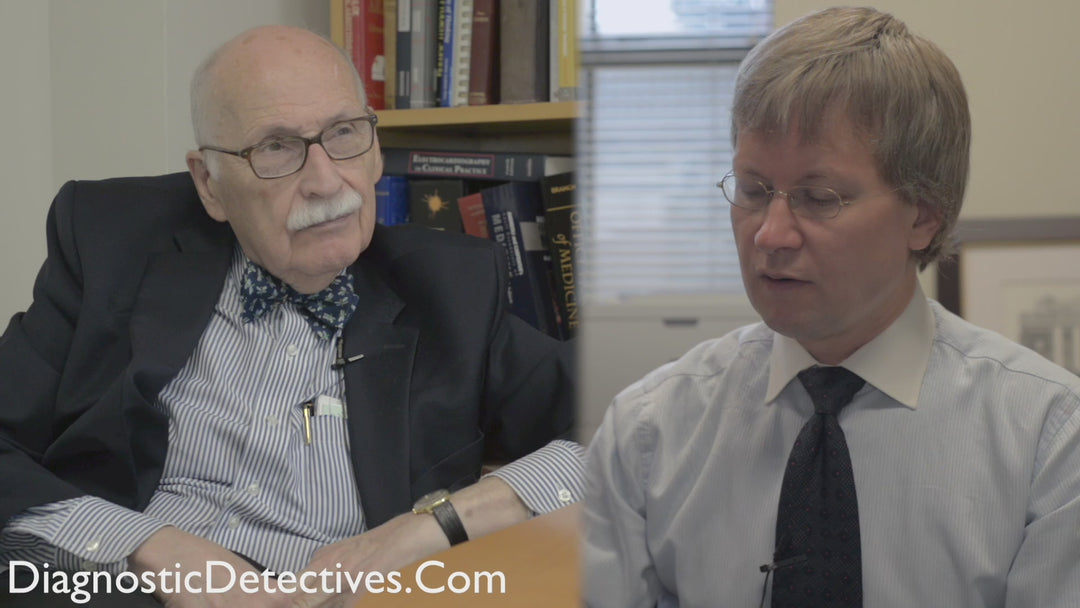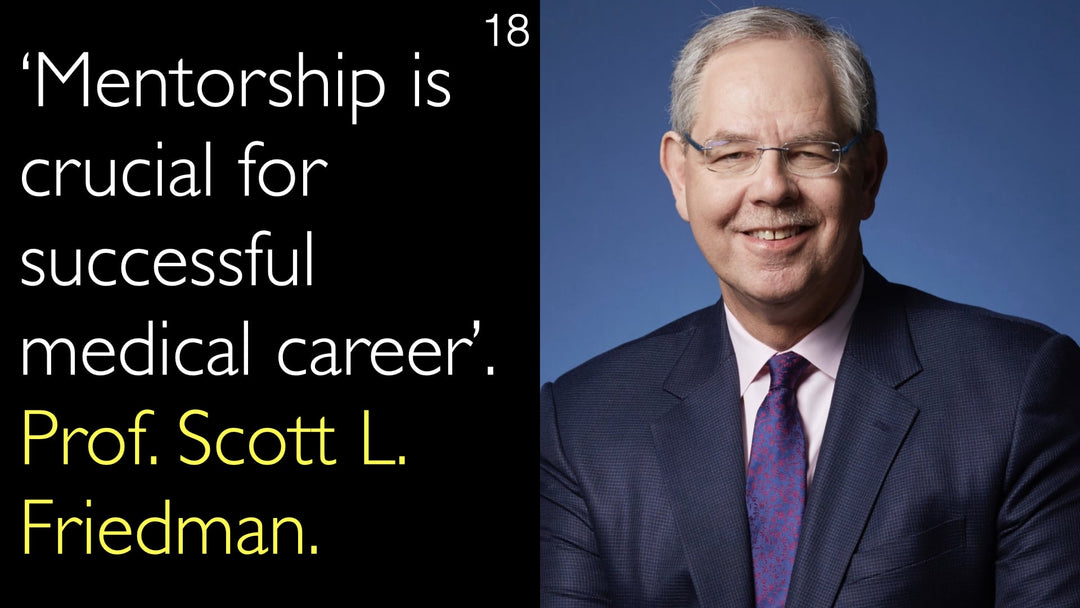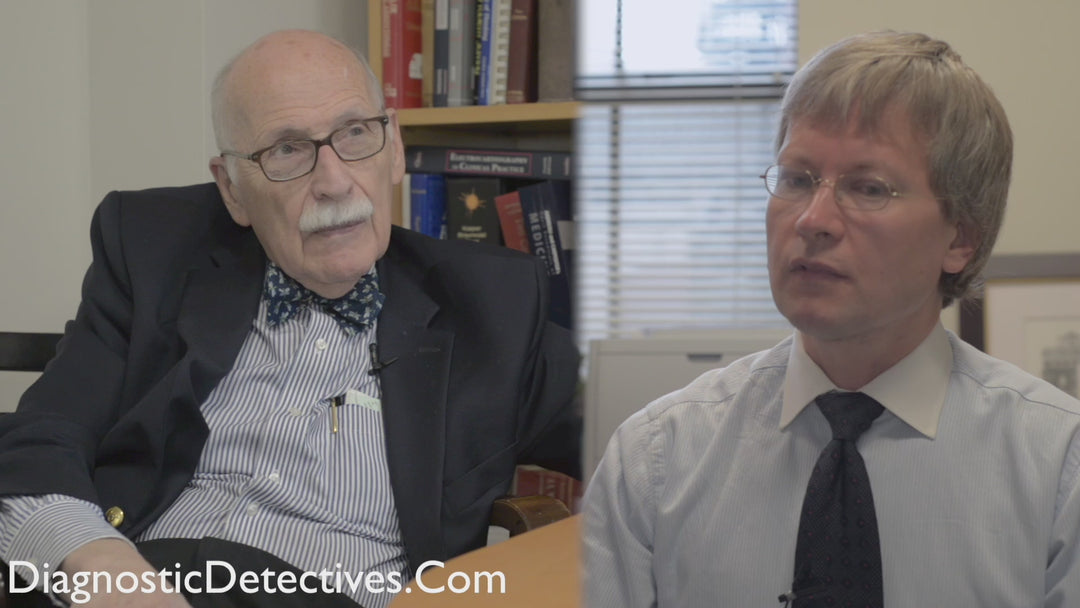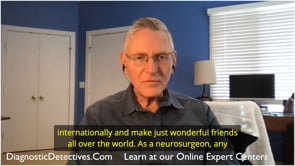Leading expert in physician wellness and medical education, Dr. Marshall Wolf, MD, explains how to avoid physician burnout. He identifies two primary causes of career dissatisfaction. Doctors often work impossible hours that damage family life. Physicians also fail to appreciate the profound rewards of clinical practice. Dr. Marshall Wolf, MD, emphasizes the critical need for a life outside of medicine. He shares his personal experience of finding immense joy in a 52-year career.
Strategies for Physician Burnout Prevention and Career Satisfaction
Jump To Section
- Understanding Physician Burnout
- Primary Causes of Dissatisfaction
- The Unsustainable Work Schedule
- Rediscovering Medicine's Rewards
- The Importance of Life Balance
- A Personal Perspective on Fulfillment
- Full Transcript
Understanding Physician Burnout
Physician burnout is a widespread issue affecting medical professionals at all career stages. Dr. Marshall Wolf, MD, discusses this challenge with Dr. Anton Titov, MD. Burnout transforms a medical calling into a mere routine job. This phenomenon impacts medical trainees, mid-career physicians, and even highly accomplished doctors.
The search for happiness and avoidance of burnout is a central concern in modern medicine. Dr. Marshall Wolf, MD, offers a unique perspective from his extensive five-decade career.
Primary Causes of Dissatisfaction
Dr. Marshall Wolf, MD, identifies two core reasons physicians experience burnout and career dissatisfaction. The first cause involves poor work positioning and unsustainable professional demands. The second cause is a loss of connection to the intrinsic rewards of medical practice.
These factors often work in combination to create a profound sense of disillusionment. Dr. Anton Titov, MD, explores these critical insights during their conversation. Understanding these root causes is the first step toward developing effective prevention strategies.
The Unsustainable Work Schedule
Impossible work hours represent a major contributor to physician burnout. Dr. Marshall Wolf, MD, emphasizes how excessive schedules damage family relationships. Many doctors find they have no life outside of their clinical responsibilities.
This work-life imbalance creates tremendous personal and professional strain. Physicians must consciously design a sustainable career structure. Dr. Marshall Wolf, MD, advises doctors to figure out how to avoid these destructive patterns.
Rediscovering Medicine's Rewards
Clinical practice offers profound rewards that physicians often overlook during burnout. Dr. Marshall Wolf, MD, describes the privilege of sharing patients' lives and solving complex problems. Helping patients navigate health challenges provides deep professional satisfaction.
This connection to patient care represents the core calling of medicine. Dr. Anton Titov, MD, discusses how physicians can maintain this perspective. Doctors who find medicine inherently satisfying are far less likely to experience burnout.
The Importance of Life Balance
A life outside of medicine is essential for long-term career satisfaction. Dr. Marshall Wolf, MD, stresses that physicians need both a profession and a personal life. This balance prevents medicine from consuming all aspects of a doctor's identity.
Maintaining outside interests and family connections provides crucial perspective. Dr. Marshall Wolf, MD, considers this balance fundamental to avoiding burnout. This approach allows physicians to sustain their passion for medicine across decades.
A Personal Perspective on Fulfillment
Dr. Marshall Wolf, MD, personally found medicine "wonderfully fun" throughout his 52-year career. His enthusiasm for clinical practice remained strong even after official retirement. He continues to spend 35 hours weekly at the hospital teaching and learning.
This enduring passion demonstrates how sustainable a medical career can be. Dr. Anton Titov, MD, highlights this remarkable example of career longevity. Dr. Marshall Wolf, MD's experience shows that burnout is not an inevitable outcome of medical practice.
Full Transcript
Dr. Marshall Wolf, MD: Physicians often suffer from burnout and dissatisfaction with a "job." The job becomes a routine, rather than the "calling" that doctors decided upon when they went into medicine. This is true for physicians in training, but it is also true for physicians mid-career and for accomplished physicians.
How to be happy as a physician? How to avoid burnout? I'm aware of the statistics on burnout. I only lasted 52 years in practice, so I don't know! I quit because I was becoming deaf.
Being a physician is just wonderfully fun. A lot of times people get burned out for two reasons. One reason is they put themselves in a bad work position. The hours are just impossible to tolerate for their family. They don't have a life outside of work.
Doctors have to figure out how not to do that. The second thing is this: physicians often don't appreciate the rewards of medical practice. They get to share patients' lives. Doctors help patients solve their problems and figure out what's going on. Physicians help them do that.
I found it wonderfully satisfying. Perhaps you don't find medicine satisfying. Then you are going to work very hard and you may decide you don't like it after a certain period of time.
The practice of medicine is a lot of fun. Sometimes people put themselves in a position where they work too many hours. So it is unsatisfying to their families. They don't have a life outside of medicine.
You do need life outside of medicine. You need to have a life as well as a profession. Personally, I just like medicine. I still enjoy it. I'm "retired," so I only come to the hospital 35 hours a week to learn and to teach.







